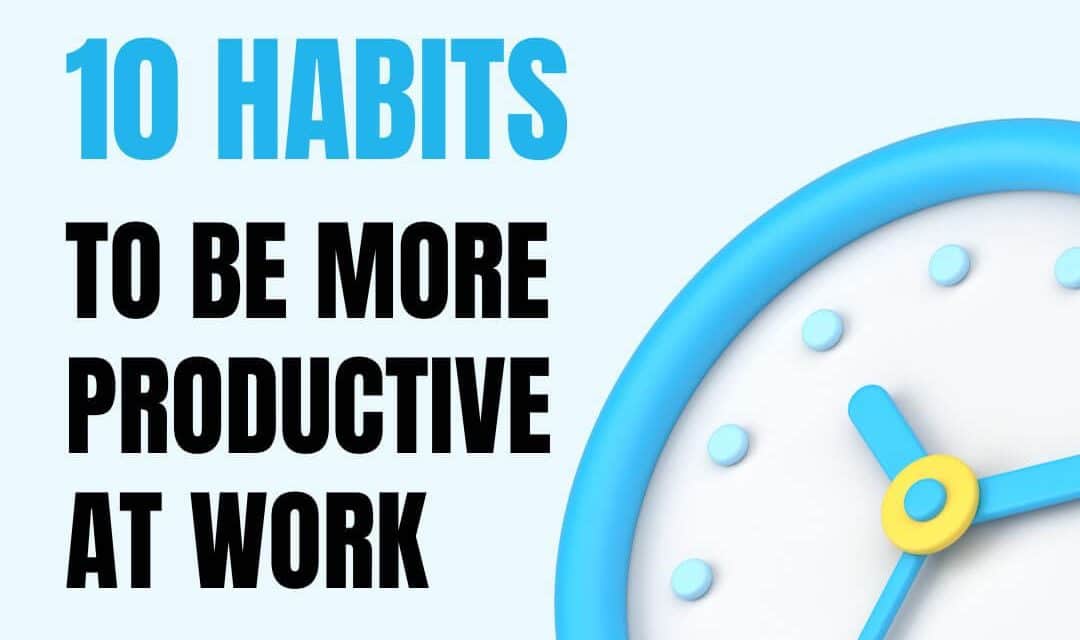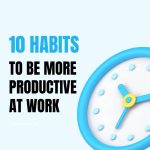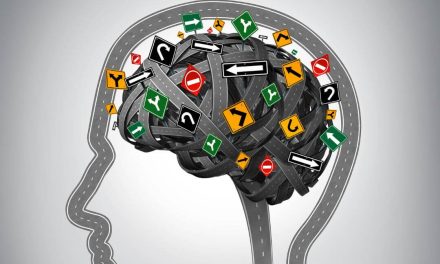
10 Habits to Become More Productive at Work

I am going to share with you 10 habits that helped me be more productive at work.
I have been looking for ways to be more productive and efficient at my work for the past 15 years. During these years, I have researched and tried different things. Some have worked for me, and others showed to be ineffective. What works for me might be different than what works for you.
I have learned over the years that what worked best for me was the smallest behavioral adjustment. Do not underestimate the difficulty of introducing such adjustments in your life. It took me a lot of determination and hard conscious work to reach there.
As a disclaimer, I do not promise you that these new habits will work for you, but I am sharing what has worked for me. I can definitely say that I am way more productive and efficient today than a few years back, and I am continuously looking for new ways to be even more productive.
If you are an ambitious person like me and would like to achieve more in a shorter time, please read this article. I would also appreciate it if you share any good ideas or habits which have worked for you as a comment. I will make sure to give it a try in the coming months.
1. Start Your Day in a Positive Way
You have probably heard it a thousand times before, here you hear it again. Starting your day with a healthy breakfast makes you productive and full of energy from the early morning onwards. Vary your diet and avoid eating the same thing for lunch every day. Taking care of yourself, your body, and your brain provides a lot of energy and focus throughout the day.
Start the day with a positive mindset. You can neither change the weather nor the traffic. You can only change your mood.
2. Be Friendly at Work
Happy employees are good employees. Make friends with your colleagues. You already spend most of your day with them, and it makes working life more valuable and increases motivation.
Therefore, also spend time on small talk in the office. It is not a waste of time; it is an investment in well-being. See the positive and valuable in your colleagues, and they will respect you more.
Share your good experiences with your colleagues. It will not only strengthen your social bonds but will also force you to notice the positive moments. Smile and always be welcoming. It is contagious, and it will automatically bring your own mood up.
3. Stop Multitasking
Yes, you read it right! Do only one thing at a time. Multitasking three tasks at the same time mean that none of them are solved efficiently. Our brains have a natural limit to how many thoughts we can focus on at a time. Avoid mistakes and concentration failures by taking one thing at a time. At the same time, it will stimulate your creativity.
4. Remove Temptations
Whether it’s social media, e-mail, working with more than one screen or device, noise from the surroundings, etc. Go if necessary for a short walk of five or ten minutes or try to work concentrated in intervals of five to fifteen minutes at a time with a few minutes break in between.
Avoid skipping actions by involving others in your own commitments. For example, your boss or your employee. Sometimes it can be a motivating factor to accompany your responsibilities with consequences or rewards.
5. Make a List
To-do lists help a lot against skipping actions. Make, for example, a list before you go home from work, listing five goals you would like to achieve the next day. In addition, have another list where you note down three personal goals you would like to achieve.
It could be, for example, buying a birthday present for your relative or booking a cinema ticket for the weekend. Remember to set only realistic goals and avoid letting the list cover the entire week. If you cover the entire week, you increase the risk of getting stressed.
Make each goal concrete, clear and simple. I will give you some examples below:
- Call the boss regarding X
- Send an e-mail to Y regarding a new customer
- Talk to the sales team about Z
If the list becomes too inaccurate, it will work against you and cause you to stress rather than help you. Keep the list short and to the point, and do not spend more than five minutes making it.
6. Organize Your Desk
Organize your desk. There is no right way, but there are many small changes that can help you on your way to being more concentrated and motivated. In fact, your desk can be crucial to whether you get more energy or less energy at work.
Keep an eye out for paperwork. Are those the same sheets that have been lying there untouched for a month? If that is the case, having them on your desk is probably more overwhelming than helpful.
Keep the desk as empty as possible. Something that has worked well for me is keeping an inbox for all new tasks and an outbox for those I finished. You can take advantage of that by getting your desk ready for the next day by the end of the day. It provides more tranquility when you meet up at a well-structured desk in the morning.
7. Keep Control of Technology
Technology can cost you as much time as it saves you. If there is something which you cannot get to work, ask for help. Otherwise, a lot of your valuable time is wasted.
Remember that your e-mail is a typical time waster. Avoid having your inbox skipping action, which takes your concentration away from more important tasks.
Turn off your e-mail notifications if you are working on an important task that requires your complete concentration.
With a simple and fast search on google, you can find several apps which block e-mail notifications and help you lower your stress levels throughout the day, and increase your concentration level.
Some e-mails evoke an automatic aversion in our brains, often because they require us to answer no or take a hard decision. Therefore, we easily avoid them. A good tip is to answer these e-mails with either a phone call or a physical meeting. Here you can better explain yourself without spending a lot of time formulating the perfect e-mail.
8. Move More and Take Breaks
When working on complex or hard tasks, it is often a good idea to go away from them for some time. Getting up or walking around pumps more oxygen into your brain and gives you additional energy and concentration. You can, for example, make it a routine to sit and work for twenty minutes, after which you get up and work for ten minutes, after which you move for a few minutes.
This cycle keeps the energy level high. Use, for example, a stopwatch or smartwatch to remind you to take small breaks when working.
Very few of our good ideas arise when working at our desks. Instead, we often get our best ideas when doing something completely different. Running, driving the car, taking a shower, eating lunch, etc.
Take breaks even when you are working on a large and important project. Without creativity and energy, the result is not going to be optimal. Breaks make you effective! Relaxing and even taking a small nap allow your brain to see things from a new perspective and in new contexts.
9. Keep an Eye on Your Posture and Breathing
Be relaxed and de-stressed. Try to be aware of your posture and breathing when working. It will reduce your stress level and increase your brain’s efficiency.
10. The alternative Solutions
Based on research, Business Backer has made a list of tiny changes which you may not have anticipated that can improve your productivity. You can, for example:
- Put a plant on your desk. It may sound banal, but the green color actually stimulates your brain and your productivity.
- You can also use scents, such as peppermint oil to stimulate your brain’s ability to work effectively. Fragrances — and especially peppermint — enhance your cognitive performance (Disclaimer: I have never tried this one yet)
- Your ability to concentrate is actually improved by chewing gum.
- Use headphones with noise cancellation to eliminate the noise around you. Persistent noise can have serious consequences for your health and not least your concentration.
Conclusion
It can take really long time to build new work habits, but small changes can lead to great results. Try it for yourself and focus on the initiatives that work best for you. The most important thing is that you commit to the effort and define your own goal.
And remember that you are a human being just like everyone else; once in a while, you will forget the actions you define or not have the time to think about them. This is perfectly fine.























Subscribe to My Newsletter
Get exclusive tips and news that I only share with my e-mail subscribers
You have Successfully Subscribed!